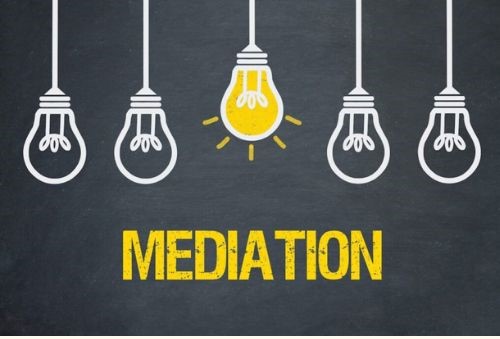Mediation in ADR: Your Path to Effective Conflict Management
Mediation in ADR | Mediation Bill | Mediation process | Mediation Act | Mediation in law | Mediation services |
Introduction
In today's complicated and linked world, conflict is an unavoidable aspect of life. Due to their effectiveness, adaptability, and capacity to preserve relationships, Alternative Dispute Resolution (ADR) strategies have significantly increased in popularity in the field of dispute resolution. Mediation stands out among the numerous ADR techniques as a key component of successful conflict management. In this essay, we'll examine the fundamental ideas, advantages, steps, and practical uses of mediation in ADR.
Understanding Mediation in ADR
Mediation is an organized procedure in which a neutral third party, known as the mediator, helps conflicting parties reach an amicable agreement. Mediation gives the parties the ability to work together to address their differences, as contrast to traditional litigation where a judge imposes a decision. The mediator stimulates clear communication, promotes comprehension, and assists the parties in developing their own solutions.
The Benefits of Mediation in ADR
Preserving Relationships: The maintenance of and even improving relationships is one of mediation's key benefits. Mediation assists in preventing the hostility that frequently results from adversarial courtroom disputes by putting an emphasis on productive discussion and common interests.
Cost-Effectiveness: In many cases, mediation is less expensive than courtroom battles. The parties actively participate in determining the outcome, saving time, money, and resources.
Empowerment: The participants are given the opportunity to own the resolution through mediation. As a result, there is a greater sense of control over the outcome, which encourages adherence to the negotiated solution.
Flexibility: Through mediation, innovative solutions can be found that are suited to the particulars of each situation. Complex issues that may not cleanly fit into legal precedents can benefit especially from this flexibility.
The Mediation Process in ADR
Initial Contact and Agreement: A mediator is appointed once the parties agree to mediate. The mediator clarifies their responsibilities, sets ground rules, and upholds confidentiality.
Opening Statements: Each party clarifies their viewpoint and intended goals, laying the groundwork for comprehension of their interests.Each side articulates their viewpoint and intended goals, laying the groundwork for comprehension of their interests.
Information Gathering: The mediator promotes open communication while probing deeper motives and issues. This enables parties to understand one another's points of view.
Generating Options: Thereafter, the mediator helps the parties come up with alternative solutions through brainstorming and creative thinking sessions.
Negotiation and Decision-Making: The parties discuss, bargain, and reach an agreement after evaluating the ideas put forward. These conversations are facilitated by the mediator, who upholds a civil tone.
Agreement and Implementation: A written agreement is used to formalize the solution once it has been agreed upon by both parties. Because all parties to this agreement participated actively in its construction, it is frequently more enduring.
Real-World Applications of Mediation in ADR
Workplace Conflict Resolution: To resolve workplace problems, including disagreements between coworkers, management, or even labor unions, mediation is frequently utilized. It keeps the office environment peaceful.
Family Disputes: Mediation can lessen emotional strain and save family connections in divorce cases, child custody disputes, or inheritance disputes.
Commercial Disputes: To resolve contractual disputes, intellectual property disputes, and other conflicts without interfering with continuing business activities, businesses frequently turn to mediation.
Community and Neighbor Disputes: Disputes between neighbors, homeowners' associations, and local communities can be resolved through mediation, promoting local solidarity.
Mediation service
Equa.Law: "At dispute resolution platform, we are committed to offering international Alternative Dispute Resolution (ADR) and mediation as efficient and effective ways to resolve disputes. Our platform acts as a dependable and impartial setting where people, groups, and communities may peacefully and cooperatively resolve their conflicts.
Best online platform for resolving disputes through Online Dispute Resolution mechanism.
Conclusion
ADR mediation gives parties the chance to work together to create solutions that are specific to their requirements, making it a crucial tool for conflict management. Mediation not only settles problems but also improves relationships because of its focus on voluntary engagement, communication, and understanding. Understanding and supporting mediation as a component of the larger ADR framework is crucial for fostering a more peaceful society as we navigate an increasingly linked world.
Include this comprehensive guide in your blog post, being careful to naturally sprinkle the focus term "Mediation in ADR" throughout the text. To make the content even more interesting and educational, feel free to include personal tales, case studies, or further research.

